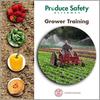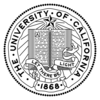
Added by Hans Estrin • Last updated July 3, 2024
Author: Produce Safety Alliance
Type: Produce Safety Rule – FSMA compliance; Planning & Verification Programs – CAPS & GAPS; People & Services
Topic: Produce Safety Introduction; Worker Health, Hygiene & Training; Soil Amendments (Compost & Manure); Wild/Domestic Animals & Land Use; Agricultural Water (Pre/Post Harvest); Post Harvest Handling & Sanitation; Produce Safety Rules, Regulations & Templates; Diversified Farms: Processing, Aggregation, Livestock Integration
This is the Produce Safety Alliance Grower Training Manual, which is available for public use. The date after the tab name indicates the upload date. As revisions are made the dates will be updated to reflect a revised upload.
Added by Rachel Schattman • Last updated July 20, 2023
Author: Sandra Jones and Rebecca Shortt
Type: Fact Sheets
Topic: Agricultural Water (Pre/Post Harvest)
Water is important in crop production because it is used in many activities such as irrigating, washing and cooling. Irrigation water can spread pathogens, microorganisms that cause disease in humans, such as Salmonella spp., E. coli O157:H7 and Cryptosporidium parvum (also known as "Crypto"). Every time contaminated water comes in direct contact with fruit or vegetables, there is a...

Added by Hans Estrin • Last updated October 24, 2022
Author: Hans Estrin
Type: Planning & Verification Programs – CAPS & GAPS
Topic: Produce Safety Introduction; Worker Health, Hygiene & Training; Soil Amendments (Compost & Manure); Wild/Domestic Animals & Land Use; Agricultural Water (Pre/Post Harvest); Post Harvest Handling & Sanitation; Produce Safety Rules, Regulations & Templates; Diversified Farms: Processing, Aggregation, Livestock Integration
Community Accreditation for Produce Safety (CAPS) is a program of the Vermont Vegetable and Berry Growers Association (VVBGA). CAPS is a voluntary, practical approach to documenting the use of practices that reduce food safety risks on farms that grow fresh produce. The CAPS advisory board of farmers and service providers has identified 18 practices that are required for accreditation. CAPS uses...

Added by Andrew Chamberlin • Last updated March 21, 2021
Author: Chris Callahan & Andy Chamberlin
Type: Case Studies & Examples; Fact Sheets; Photos & Videos; Tools, Calculators & Project Templates
Topic: Produce Safety Introduction; Worker Health, Hygiene & Training
Handwashing has been shown to be one of the most effective ways to reduce the risk of transmission of human pathogens between people. But, sometimes we are inconveniently far from the closest wash room and sink. Hand washing stations provide a portable means of washing hands on farms, at farmers’ markets, and at recreational sites. This guide was motivated by a desire to improve current...

Added by Rachel Schattman • Last updated November 23, 2020
Type: Photos & Videos
Topic: Agricultural Water (Pre/Post Harvest)
This photo shows the Vermont Department of Health's water test kit

Added by Chris Callahan • Last updated April 27, 2020
Author: Chris Callahan & Andy Chamberlin
Type: Fact Sheets
Topic: Agricultural Water (Pre/Post Harvest); Post Harvest Handling & Sanitation
Having water when and where you need it can make a big difference in vegetable wash station efficiency. This blog post captures some of the option for managing hoses in wash/pack buildings.

Added by Chris Callahan • Last updated April 27, 2020
Author: Chris Callahan & Andy Chamberlin
Type: Case Studies & Examples; Fact Sheets
Topic: Agricultural Water (Pre/Post Harvest); Post Harvest Handling & Sanitation
Produce wash sinks and tanks on vegetable farms consist of several different styles, designs, sizes, and uses. The needs vary from farm to farm but some features to consider are highlighted here.

Added by Rachel Schattman • Last updated January 3, 2020
Author: Trevor Suslow
Type: Fact Sheets
Topic: Agricultural Water (Pre/Post Harvest); Post Harvest Handling & Sanitation
Disinfection is part of an overall sanitation and safety management program. Chlorination of process water is one of the primary elements of a properly managed postharvest sanitation program. In conjunction with an overall safety management program, chlorination is generally effective, comparatively inexpensive, and may be implemented in operations of any size.

Added by Hans Estrin • Last updated April 15, 2019
Author: UVM Extension Produce Safety Program
Type: Fact Sheets
Topic: Agricultural Water (Pre/Post Harvest)
This is a summary of how to take take water samples, what tests to order, and why.

Added by Hans Estrin • Last updated April 15, 2019
Author: Lynn Blevins
Type: Fact Sheets
Topic: Agricultural Water (Pre/Post Harvest)
Fact Sheet and summary of UVM Extension field-based research on E.coli in multiple dunk tanks in succession.
Added by Rachel Schattman • Last updated April 12, 2019
Author: Vermont Agency of Agriculture, Food, and Markets
Type: Fact Sheets; People & Services
Topic: Agricultural Water (Pre/Post Harvest)
This fact sheet provides contact information for laboratories in Vermont and neighboring states that offer agricultural water testing services. These services can be used to comply with regulatory or audit programs that require growers to test their agricultural water for the presence of potentially harmful bacteria.
Added by Rachel Schattman • Last updated February 4, 2019
Author: Luke Laborde, Ph.D.
Type: Fact Sheets; Planning & Verification Programs – CAPS & GAPS
Topic: Produce Safety Rules, Regulations & Templates
This collection of articles covers information and resources needed to meet Good Agricultural Practices (GAPs) and Food Safety Modernization Act (FSMA) standards specific for the mushroom industry.









